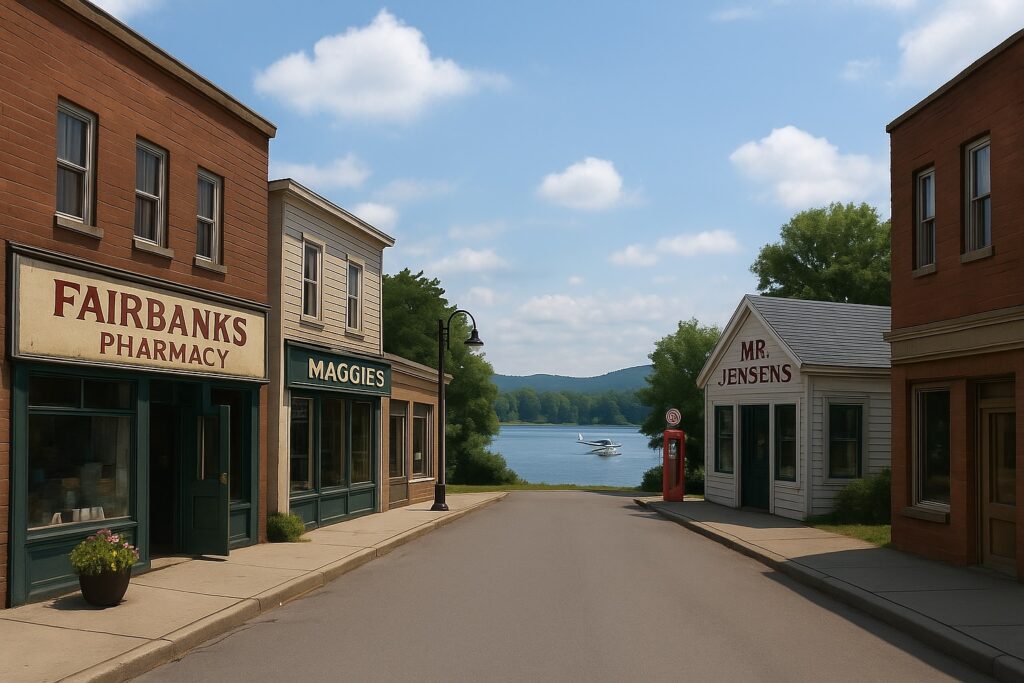There’s a place that lives in all of us — a town tucked into the corners of memory, where the streets always feel familiar and every turn offers the comfort of belonging. For me, that place is Fairbanks.
Fairbanks isn’t on any map. I never gave it a state, because I wanted it to be anywhere you needed it to be. Maybe you see it nestled in the hills of New England, maybe along a quiet Midwestern Lake, or perhaps near the rugged edges of the Pacific Northwest. Wherever your imagination leads, Fairbanks waits with open arms.
It’s a town of simple rhythms and small wonders. Maggie’s Café sits at the heart of Main Street, its windows glowing like a beacon on foggy mornings and its coffee carrying whispers of a hundred conversations shared across time. A few doors down, Mr. Jensen’s service station hums with the sound of turning wrenches and friendly banter, while the Bates Pharmacy keeps its door wide open, the scent of penny candy mingling with the faint trace of lavender from Mrs. Bates’ hand lotion.
Beyond the shops, the cottages gather around Mirror Lake like old friends, each with its own name, its own story, and its own set of memories. The water is deep and still, reflecting the skies of summer and the frozen hush of winter. It’s the kind of place where families return generation after generation, their laughter echoing over the water, their stories woven into the very fabric of the lake.
But before you ever reach those cottages, you must pass the Briggs house. Once stately, with a wide wraparound porch and tall windows that caught the afternoon sun, it now stands in disrepair. Shutters hang crooked, boards cover the glass, and the weeds crawl high against the foundation. The old fence has long since collapsed, its timbers scattered like bones along the dirt road that winds past it. Some say the house watches the lake; others whisper that it guards its secrets. To arrive at Mirror Lake is to first move through the shadow of the Briggs home — a threshold between the ordinary comfort of town and the mysteries waiting in the quiet of the cottages.
Because beneath the warmth, Fairbanks holds its share of shadows. The Briggs house looms at the edge of town, its silence unsettling, its history uncertain. Stories drift around it — of closed-off rooms, of voices carried on the wind, of eyes that once watched from the upper windows. On quiet nights, when the lake is still and the streets have emptied, you can almost feel its presence following you, as if it remembers every soul who’s passed beneath its gaze.
What makes Fairbanks special isn’t just the shops or the cottages or the lake itself. It’s the way it feels both comforting and mysterious, as though it has known you forever, yet still has something left to reveal.
Fairbanks isn’t just a setting. It’s a place you already know. It’s the town you’ve carried with you all along — and the one that just might surprise you when you least expect it.




